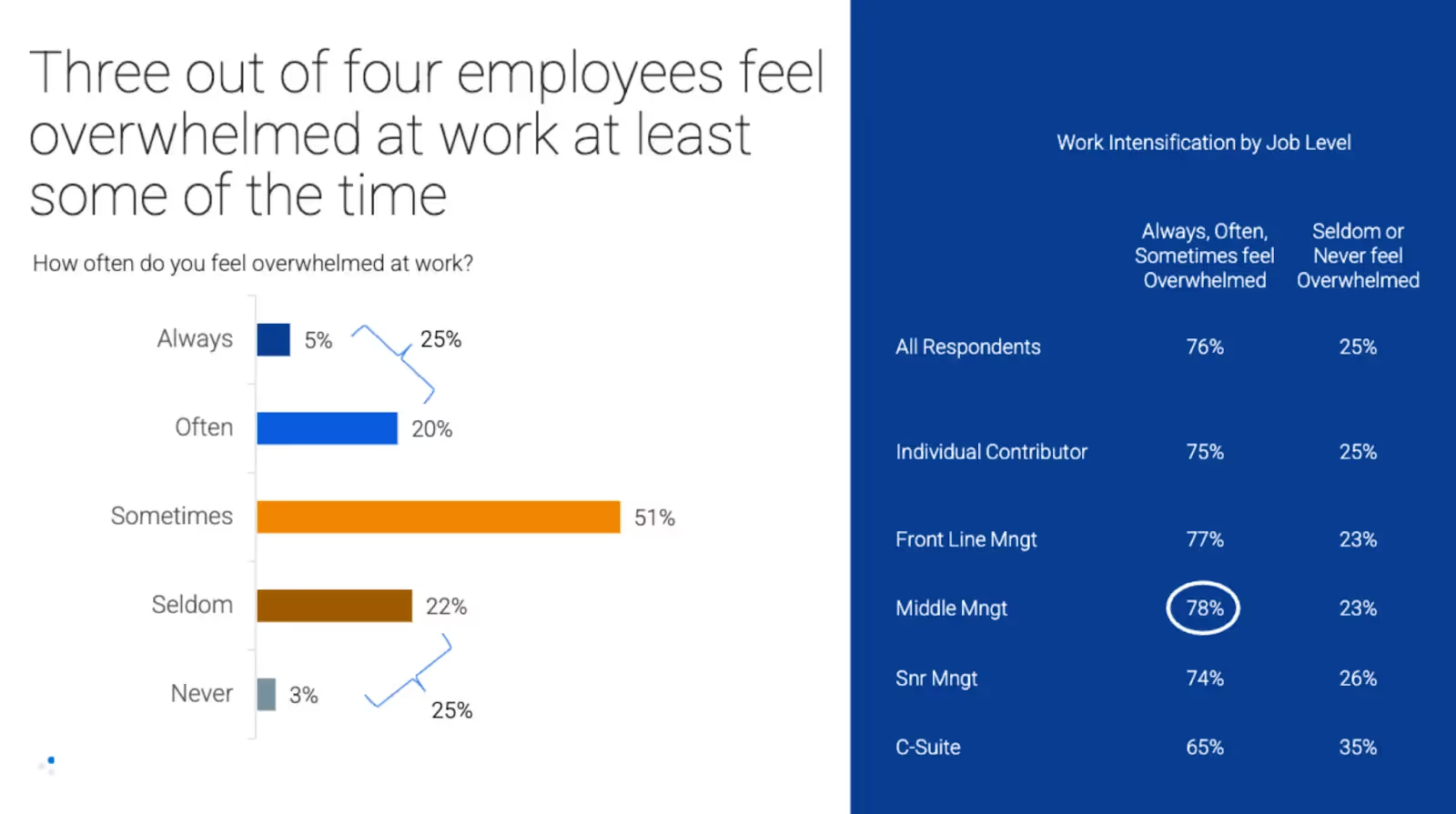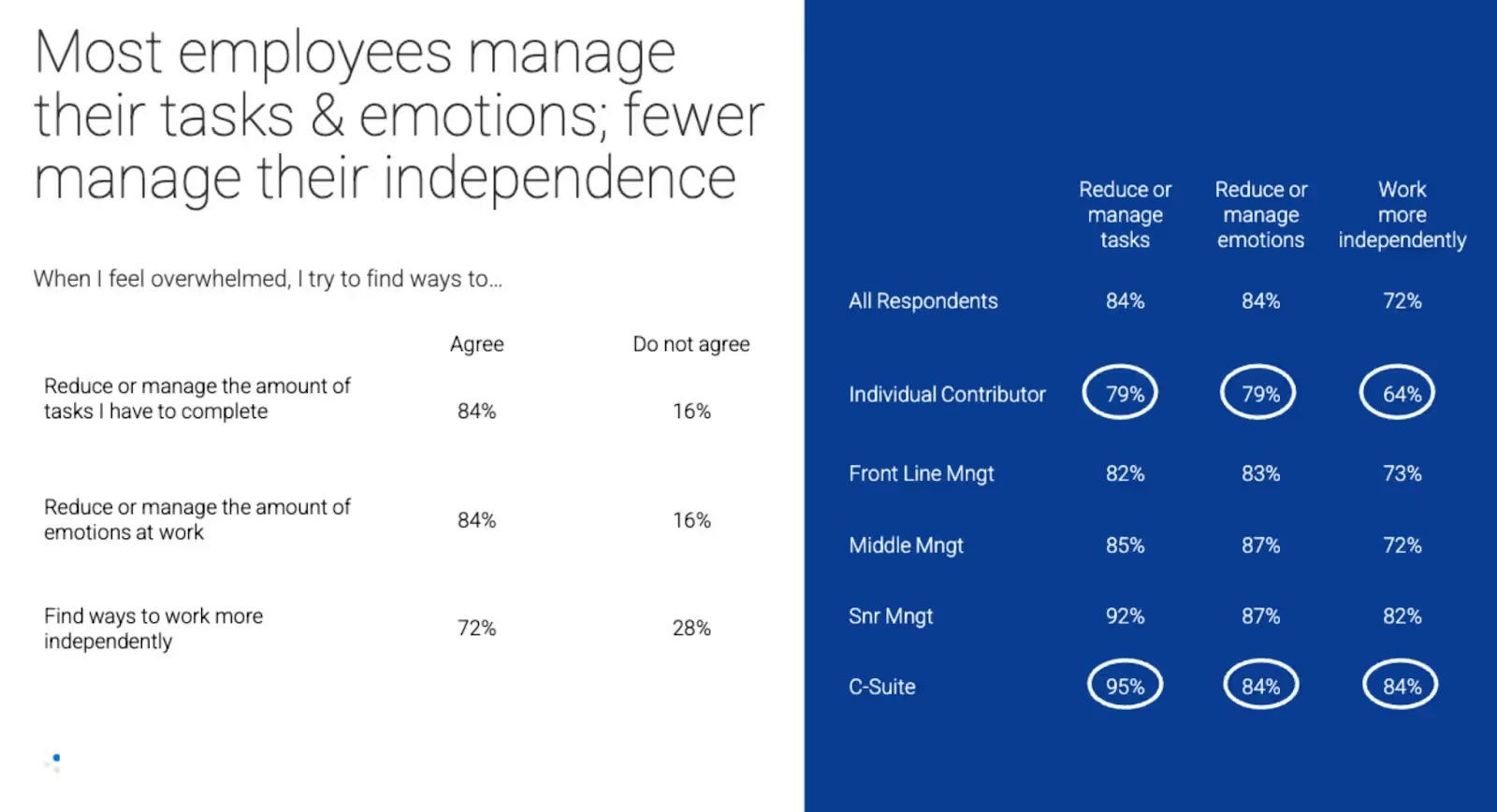
AI
Designing AI for Researchers: Lessons from 6 Months of Remy
Anthony Lam
February 25, 2026
Market Research
Articles

AI
Designing AI for Researchers: Lessons from 6 Months of Remy
Anthony Lam
February 25, 2026
Market Research
Articles

AI
64 AI Market Research Prompts for Data Analysis
February 25, 2026
Market Research
Articles

AI
64 AI Market Research Prompts for Data Analysis
February 25, 2026
Market Research
Articles

Advanced Research
9 Essential Questions for Evaluating Employee Satisfaction Software
February 20, 2026
Employee Research
Articles

Advanced Research
9 Essential Questions for Evaluating Employee Satisfaction Software
February 20, 2026
Employee Research
Articles

Advanced Research
How to Evaluate Market Research Vendors for Global Reach
Team Remesh
February 10, 2026
Market Research
Articles

Advanced Research
How to Evaluate Market Research Vendors for Global Reach
Team Remesh
February 10, 2026
Market Research
Articles

Advanced Research
3 Early-Stage Research Methods to Gather Consumer Insights
Team Remesh
January 27, 2026
Market Research
Articles

Advanced Research
3 Early-Stage Research Methods to Gather Consumer Insights
Team Remesh
January 27, 2026
Market Research
Articles
.avif)
Advanced Research
Why Agencies Should Embrace AI Tools for Market Research
Team Remesh
January 26, 2026
Articles
.avif)
Advanced Research
Why Agencies Should Embrace AI Tools for Market Research
Team Remesh
January 26, 2026
Articles

Advanced Research
The Top Market Research Companies for the CPG Industry
Team Remesh
January 20, 2026
Market Research
Articles

Advanced Research
The Top Market Research Companies for the CPG Industry
Team Remesh
January 20, 2026
Market Research
Articles

Advanced Research
The Most Cutting-Edge Consumer Insights Software of 2026
Team Remesh
January 5, 2026
Market Research
Articles

Advanced Research
The Most Cutting-Edge Consumer Insights Software of 2026
Team Remesh
January 5, 2026
Market Research
Articles

Research 101
Introducing: Poll Comparison - Streamline Concept Testing and Make Better Decisions Faster
Emmet Hennessy
November 24, 2025
Market Research
Articles

Research 101
Introducing: Poll Comparison - Streamline Concept Testing and Make Better Decisions Faster
Emmet Hennessy
November 24, 2025
Market Research
Articles
Too Much, Too Fast: What Work Intensification Is Doing to Your Team (and What to Do About It)
New data from 1,000 employees across industries uncovers what’s behind today’s overwhelming work culture, who it’s hitting hardest, and what leaders (and employees) can do to push back.



Burnout is up. Stress is everywhere. And even your highest performers are quietly drowning. Why? In our latest Remesh webinar, Organizational Psychologist Dr. Patrick Hyland and Founder and CEO of Anthrome Insight LLC Melissa Swift explored a growing but often overlooked issue: work intensification. What happens when there’s not just too much work—but too much crammed into every hour?
New data from 1,000 employees across industries uncovers what’s behind today’s overwhelming work culture, who it’s hitting hardest, and what leaders (and employees) can do to push back.
About the Study
To develop a better understanding of work intensification, we conducted a field study using the
Remesh platform in late April 2025. Using Remesh Recruit + Live & Flex, we surveyed 1,000+
employees from various organizations. We asked a combination of open and closed-ended questions to gain insights into how current events are affecting employees’ experiences at work.
Here’s a look at what we learned and why it matters.
What Is Work Intensification?
Work intensification goes beyond long hours. It’s about the density of work. It’s when tasks, deadlines, emotional demands, and interdependence all stack up—leaving every minute heavier than the last.
Unlike traditional overwork, intensification isn’t always visible. But its impact is profound: increased stress, decreased motivation, and a growing gap between how senior leaders and frontline workers experience work.
Key Findings from the Study
1. Most of us feel overwhelmed.
Three in four employees say they feel overwhelmed at least some of the time. One in four say they feel overwhelmed often or always.

2. Middle managers are struggling the most.
They’re bearing the brunt of layoffs, change initiatives, and coordination challenges—without the support or autonomy of senior leaders. The result? A pressure cooker of responsibility.
3. Senior leaders are overloaded too—but differently.
C-suite respondents were 2.5x more likely to always feel overwhelmed than their peers. But the stress often comes from the sheer volume of tasks—basic admin, communication, and time management—not the emotional weight of leadership.
4. Individual contributors feel powerless.
Compared to managers, frontline employees are far less likely to use strategies to reduce their workload, manage emotions, or work independently—often because they don’t feel empowered to.
What’s Driving the Overwhelm?
Participants cited tight deadlines and high workload as top causes, but other themes emerged too:
- Poor prioritization from managers
- Bureaucratic inefficiencies
- Interpersonal drama and emotional overload
- Chaotic, unpredictable work environments
Employees are not just busy; they’re bogged down by broken systems, unshielded from stress, and unsure of how to cope.
Strategies That Help (And Who’s Using Them)
The research highlighted three core coping strategies:
- Reducing or managing workload
- Reducing or managing emotional exposure
- Working more independently

Employees who consistently used all three were 4x more likely to feel highly motivated—but also 4x more likely to feel overwhelmed. In other words, the strategies help, but don’t fully solve, the problem. Especially when the system stays the same.
How Organizations Can Respond
Melissa and Patrick offered practical takeaways for leaders:
Fix the work, not just the worker
Offloading tasks to tech is underutilized. Workload and workflows can be improved.
Encourage healthy independence.
Collaboration is valuable—but too much interdependence can be overwhelming.
Empower employees to prioritize.
Give teams tools and permission to push back when things pile up.
Don’t ignore middle management.
They need support, upskilling, and space to lead—not just absorb stress from above and below.
And if you're an employee feeling the heat? Start by identifying your biggest source of overwhelm, then experiment with strategies to manage tasks, emotions, or independence. Talk to your manager about what you need. This is a conversation worth having.
Everyone Affects Everyone
Perhaps the most striking takeaway from the session was this: no one is on the sidelines. Your overwhelm affects your team. Your coping strategies (or lack thereof) set the tone. And until we start addressing the systems that intensify work, individual fixes will only go so far.
Watch the Full Webinar On-Demand
Ready to go deeper into the data? Hear the full discussion between Dr. Patrick Hyland and Melissa Swift and explore what work intensification looks like across roles, generations, and functions.
Watch Now: The Intensification of Work: Causes, Challenges, and Solutions
-
Lorem ipsum dolor sit amet, consectetur adipiscing elit. Suspendisse varius enim in eros elementum tristique. Duis cursus, mi quis viverra ornare, eros dolor interdum nulla, ut commodo diam libero vitae erat. Aenean faucibus nibh et justo cursus id rutrum lorem imperdiet. Nunc ut sem vitae risus tristique posuere.
-
Lorem ipsum dolor sit amet, consectetur adipiscing elit. Suspendisse varius enim in eros elementum tristique. Duis cursus, mi quis viverra ornare, eros dolor interdum nulla, ut commodo diam libero vitae erat. Aenean faucibus nibh et justo cursus id rutrum lorem imperdiet. Nunc ut sem vitae risus tristique posuere.
-
More



Stay up-to date.
Stay ahead of the curve. Get it all. Or get what suits you. Our 101 material is great if you’re used to working with an agency. Are you a seasoned pro? Sign up to receive just our advanced materials.

.png)

.png)

.png)
.png)





